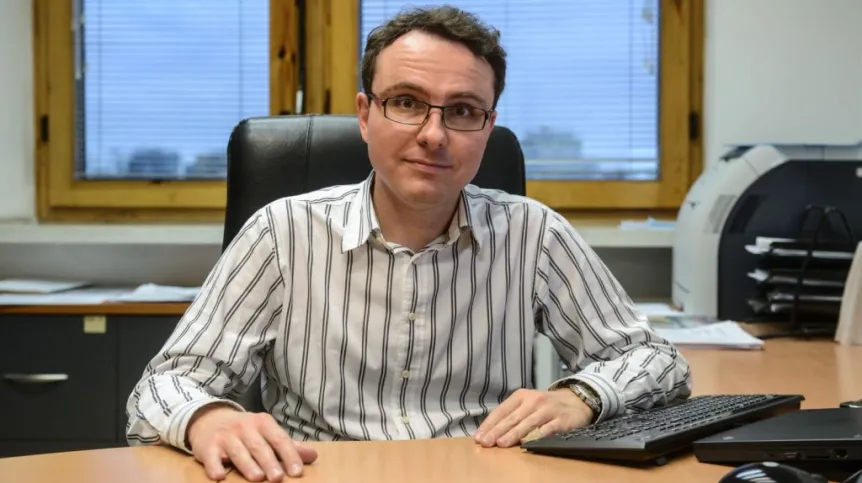
Prof. Janusz Bujnicki is in the prestigious group of seven scientific advisers to the European Commission. This group has been appointed under the new EC Scientific Advice Mechanism (SAM). Bujnicki will be the youngest of these advisers.
Prof. Janusz Bujnicki of the International Institute of Molecular and Cell Biology in Warsaw and six other prominent scholars will form the so-called High Level Group in the Scientific Advice Mechanism SAM. representatives of the Polish Academy of Sciences reported on Prof. Bujnicki’s appointment in a release sent to PAP last Tuesday.
In addition to Prof. Bujnicki, the members of this prestigious group are: Prof. Pearl Dykstra from the Erasmus University in Rotterdam, Prof. Elvira Fortunato from Universidade Nova in Lisbon, CERN Director General Rolf-Dieter Heuer, Julia Slingo from the Met Office in Exeter, director of the Institut Henri Poincaré in Paris Cédric Villani and the Rector of the Technical University of Denmark Henrik C. Wegener.
Quoted in the EC release, European Commissioner for Research, Science and Innovation, Carlos Moedas said: "The European Commission will rely on their independent advice on a range of complex policy issues where high-level scientific input is needed".
Announced last Tuesday in Brussels, the Scientific Advice Mechanism is intended to give the EC access to the best possible scientific advice, independent from institutional pressure and political interests. SAM will present a look at a problem from the point of view of different fields of science and different approaches.
Commissioner Moedas announced the intention to set up the EC Scientific Advice Mechanism (SAM) in May. The most important element of this mechanism is the seven advisers forming the High Level Group. Their work will be supported by the expertise of six European scientific organizations, the consortium of which won an H2020 competition.
The first meeting of the group is planned for 2016.
President of the Polish Academy of Sciences Prof. Jerzy Duszyński commented of the appointment of the Polish scientist: "I am very happy. It is a great success for Janusz Bujnicki and the Academy of Young Scholars of PAS, which put forward his candidacy. This is a clear signal that we are serious participant in the scientific life of Europe, rich in young talent. Janusz is definitely the youngest person among the advisors. I would like to thank all those who believed in his potential and supported his candidacy".
Janusz M. Bujnicki (b. 1975) is a professor of biological sciences and head of the research group at the International Institute of Molecular and Cell Biology in Warsaw and at Adam Mickiewicz University in Poznań. He was awarded the title of professor in 2009. His research combines bioinformatics, structural biology and synthetic biology. His achievements include the development of methods for computational modelling of protein and RNA 3D structures, discovery and characterization of enzymes involved in RNA metabolism, and engineering of proteins with new functions.
He is an author of more than 290 widely cited publications. In 2009 he won the prestigious ERC Starting Grant, and two years later - ERC Proof of Concept. He received numerous awards, prizes, fellowships, including the National Science Centre Award, the Award of the Minister of Science and Higher Education and the Prime Minister\'s Award. In 2013 he won the national plebiscite “Poles with Verve” in the Science category. He takes an active part in the work of various organizations and scientific bodies, including: the Academy of Young Scholars PAS, social movement Citizens of Science and the Science Policy Committee - an advisory body to the Minister of Science and Higher Education.
PAP - Science and Scholarship in Poland
lt/ mki/ zan/
tr. RL













